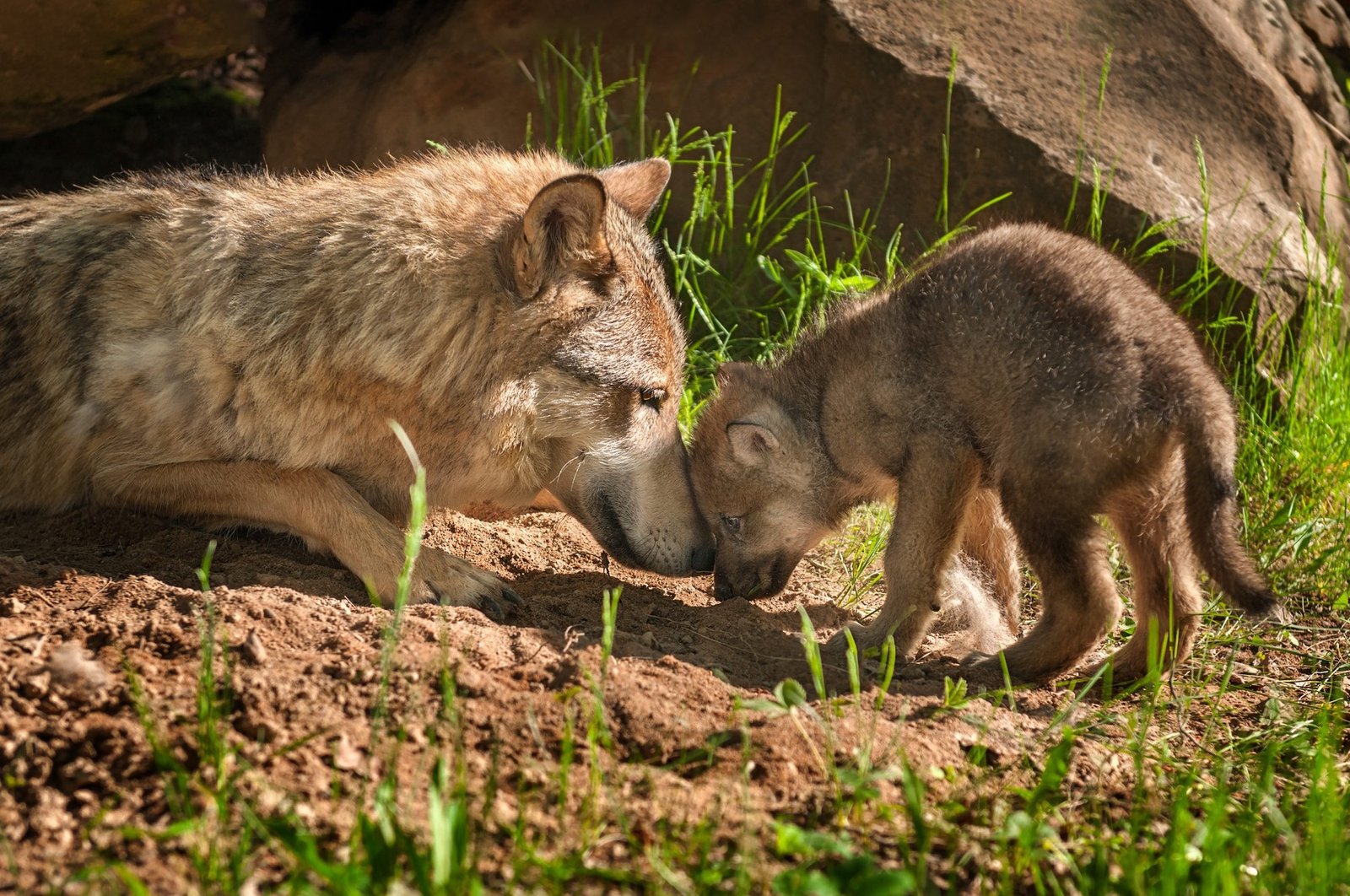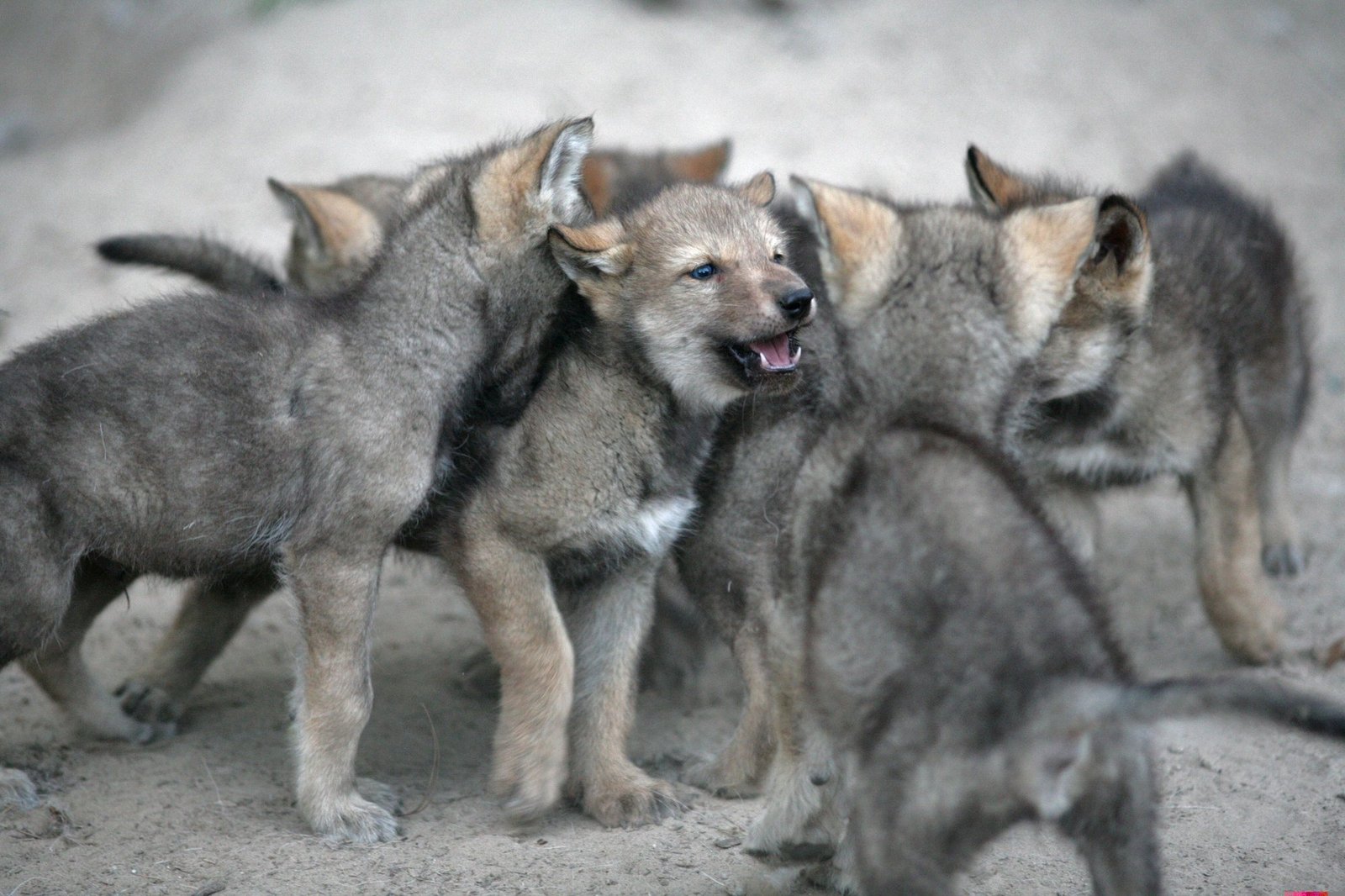
Animal behavior and evolution
To answer this question, we first need to understand animal behavior and evolution.
Wolves are wild animals with a strong sense of family and social behavior.
In a wolf pack with a strict hierarchy, the female wolf often becomes the leader in the pack, leading the pack and maintaining territory and order.
Dogs are close relatives of wolves. After a long time of being domesticated by humans, dogs have become humans’ pets.
From the above characteristics, it can be seen that wolves and dogs are both highly social animals. Their behavior and evolution have many similarities but also some differences.
Experiments and behavioral research
To discover whether wolves view puppies as their own children, scientists conducted a series of experiments and behavioral studies.

Experiment 1: An experiment by Canadian researchers
In one experiment, Canadian researchers placed a puppy next to a newborn female wolf in a brand new wolf den.
Observations showed that female wolves did not treat the puppies as if the puppies were their own.
The conclusion of this experiment was that the wolves did not regard the puppies as their own children.

Experiment 2: Experiment by Italian researchers
Italian researchers used a medium-sized dog and an arctic wolf in their experiments.
The results showed that arctic wolves displayed some curious behavior, but did not display any maternal behavior.
However, when the researchers separated the puppies from the medium-sized dogs in two cages, the arctic wolves showed certain responses, such as sniffing the puppies and going
From the results of these experiments and studies, it can be seen that wolves do not consider puppies as their own children, and their behavior and expressions towards puppies are also different from their own children.

Why don’t wolves treat puppies as their own children?
This refers to why animals evolve and behave.
In the wild, wolves need to cooperate with each other to hunt, reproduce, and protect their territory.

Dogs are close relatives of wolves, but as humans domesticated and bred them, their genes and behavior gradually changed.
As for wolves, they appear very fierce when their children and territory are robbed of them.
Additionally, dogs and wolves differ in their social hierarchy and behavior.
Therefore, the behavior and evolution between wolves and dogs are very different. Wolves will not consider puppies as their own children, this is due to differences in behavioral habits and biological adaptation mechanisms.








